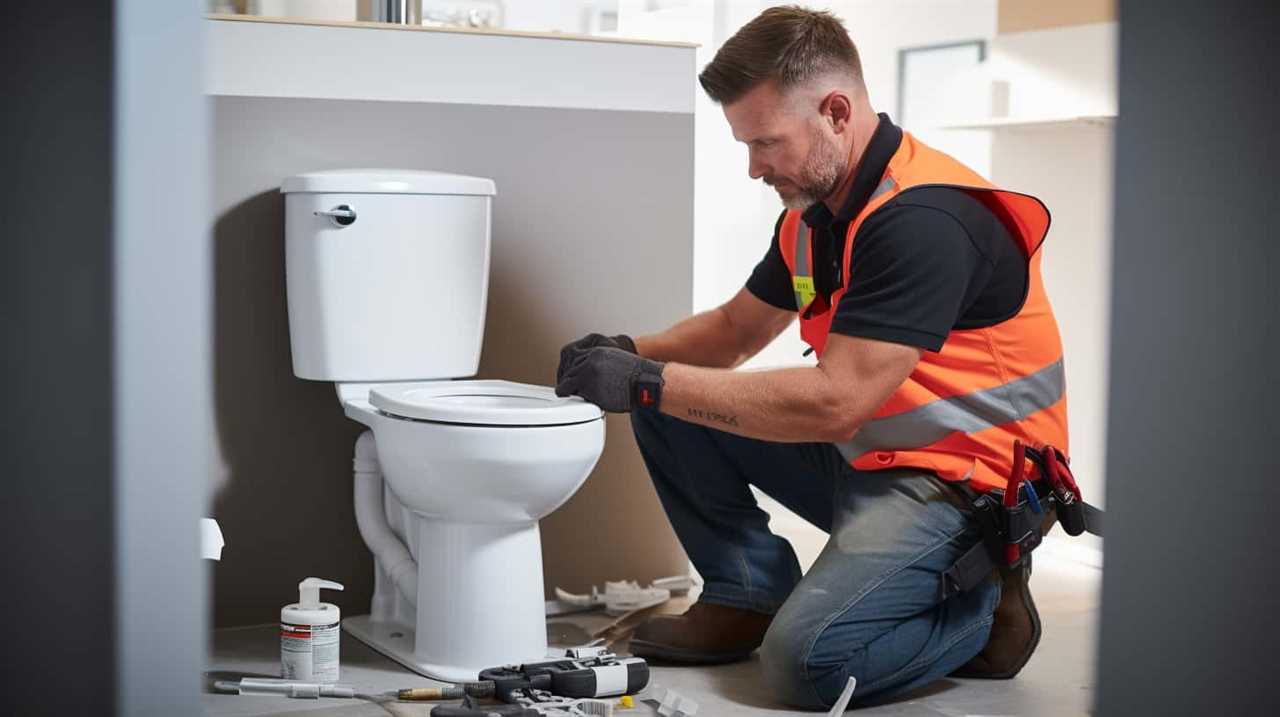Have you ever wondered if toilet paper really breaks down in a septic tank? Well, we’re here to provide you with the facts.
In this article, we’ll delve into the science behind toilet paper decomposition and explore the factors that affect its breakdown in septic tanks.
We’ll also discuss the types of toilet paper that decompose well and provide steps to ensure proper decomposition.
Let’s debunk common misconceptions and master the art of toilet paper disposal in septic tanks.
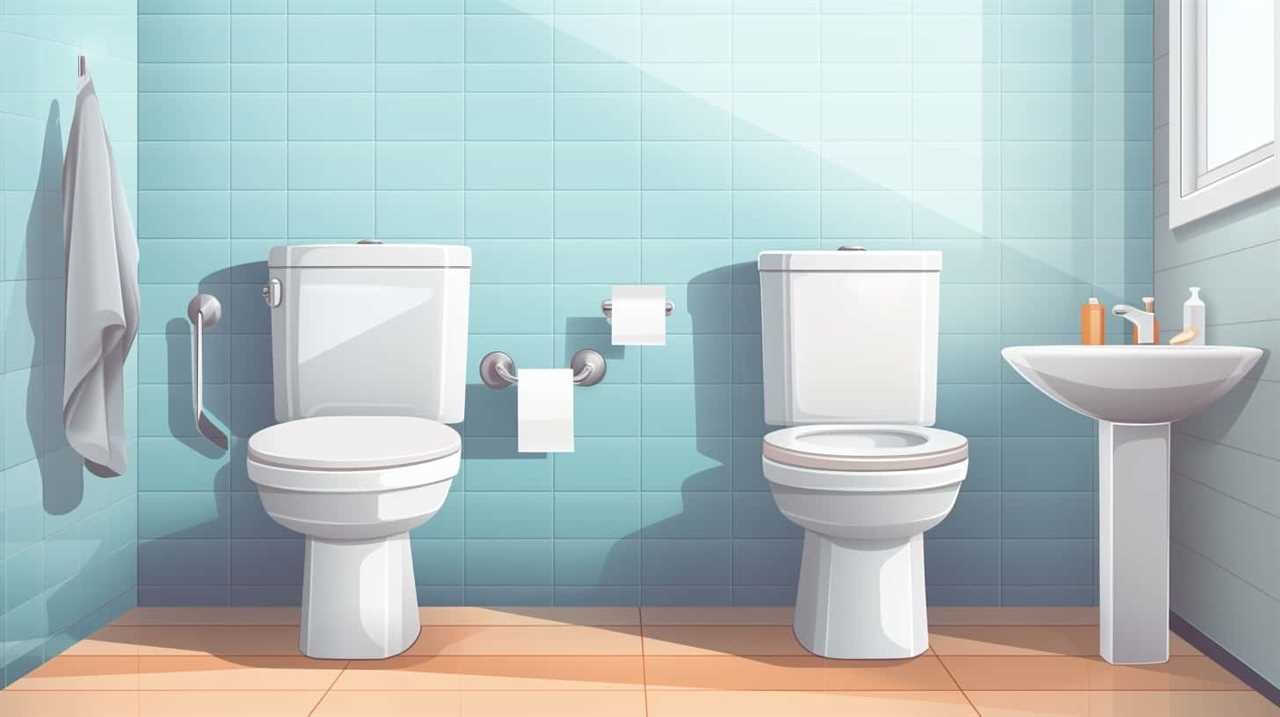
Key Takeaways
- Toilet paper is composed of cellulose fibers derived from plant sources and is designed to break down easily.
- Microorganisms in septic tanks, such as bacteria and fungi, produce enzymes that break down cellulose fibers and lead to the degradation of toilet paper into organic matter.
- Thicker toilet paper takes longer to break down, and maintaining balanced pH levels in septic tanks promotes efficient toilet paper decomposition.
- Recycled toilet paper made from post-consumer recycled paper and biodegradable toilet paper are good options for septic tanks, while "ultra-strong" or "extra thick" toilet paper should be avoided.
The Science of Toilet Paper Decomposition
To understand the science of toilet paper decomposition, we need to examine the behavior of cellulose fibers in septic tank environments. Toilet paper, the primary material flushed down toilets, is composed of cellulose fibers derived from plant sources such as wood pulp. These fibers are designed to break down easily, enabling microbial activity to play a crucial role in the decomposition process.
Cellulose, a complex carbohydrate, serves as a food source for microorganisms present in septic tanks. These microorganisms, including bacteria and fungi, produce enzymes that break down the cellulose fibers into simpler compounds. This microbial activity leads to the degradation of toilet paper into organic matter, which can then be further broken down by other microorganisms.
The composition of toilet paper, with its high cellulose content, promotes rapid decomposition in septic tank environments. The presence of sufficient moisture and oxygen levels also facilitates the growth and activity of microorganisms. Understanding the interplay between toilet paper composition and microbial activity is essential in assessing the rate of decomposition and the overall functioning of septic tank systems.
Factors Affecting Toilet Paper Breakdown in Septic Tanks
In septic tanks, the breakdown of toilet paper is influenced by various factors. One important factor is the thickness of the toilet paper. Thicker toilet paper takes longer to break down because it contains more fibers and is more resistant to degradation. Septic tanks rely on the natural process of bacterial decomposition to break down waste, and thicker toilet paper can impede this process.
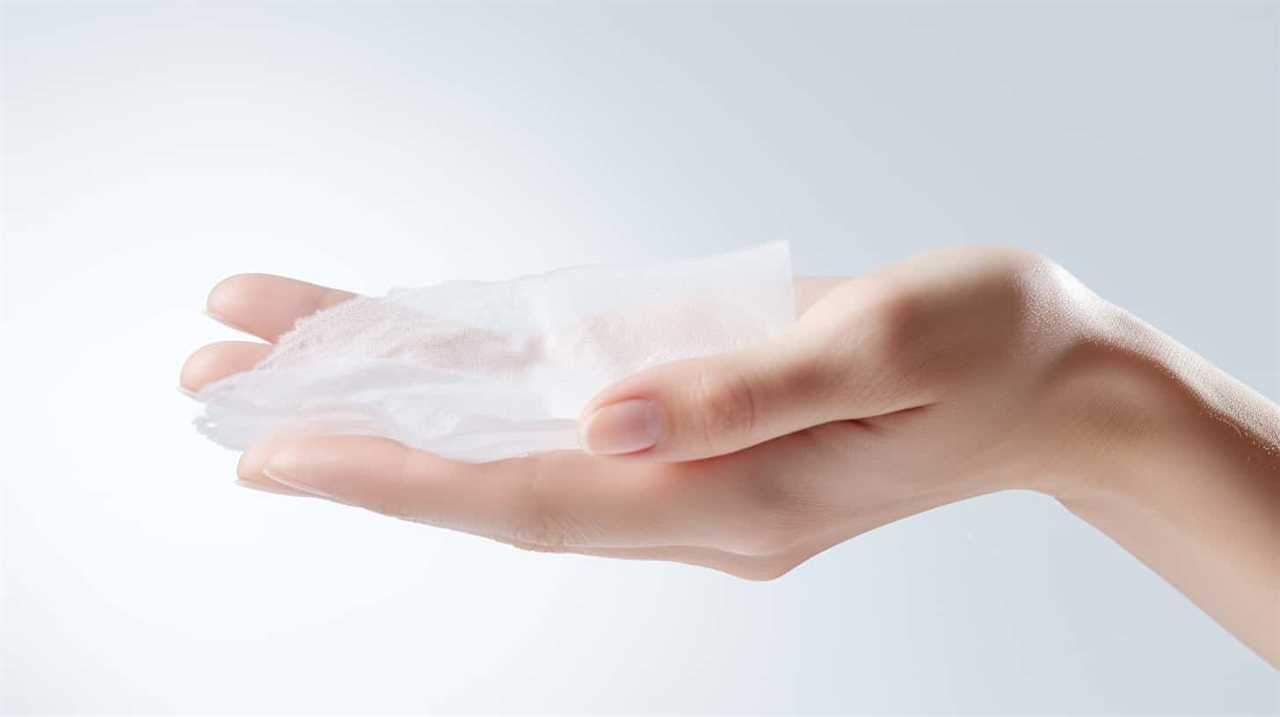
Another factor that affects toilet paper breakdown in septic tanks is the pH levels of the tank. Septic tanks function optimally when the pH levels are balanced. Acidic or alkaline conditions can inhibit the growth of the bacteria responsible for breaking down waste, including toilet paper. Therefore, maintaining proper pH levels is crucial for efficient toilet paper decomposition in septic tanks.
Transitioning to the subsequent section, let’s now explore the types of toilet paper that decompose well in septic tanks.
Types of Toilet Paper That Decompose Well in Septic Tanks
We have found that certain brands of toilet paper decompose well in septic tanks. When choosing toilet paper for your septic system, consider the following eco-friendly options that are septic safe:
- Recycled toilet paper: Made from post-consumer recycled paper, this type of toilet paper breaks down easily in septic tanks. Look for brands that are specifically labeled as septic safe.
- Biodegradable toilet paper: This type of toilet paper is designed to break down quickly and easily, reducing the strain on your septic system. Look for brands that are certified as biodegradable.
Both options are environmentally friendly and can help maintain the health of your septic system.
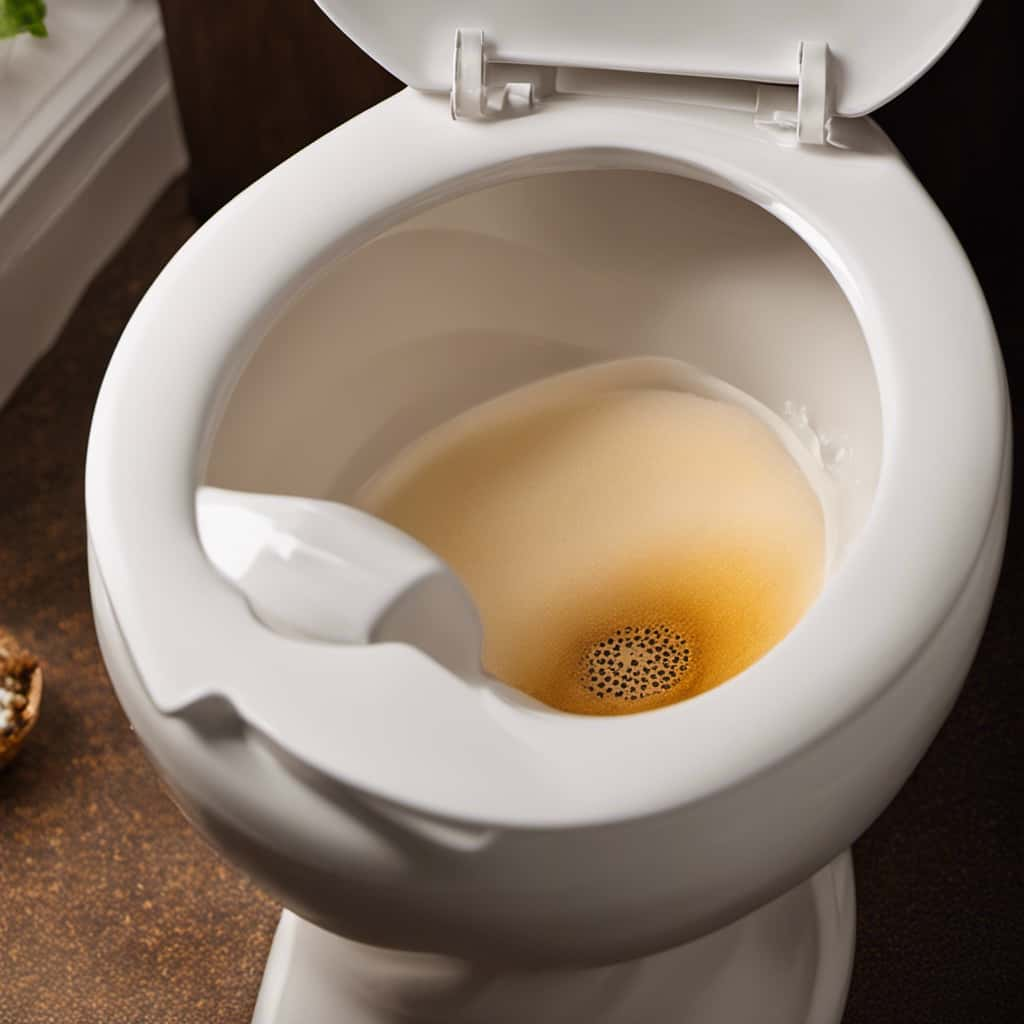
Remember to avoid using toilet paper that’s labeled as ‘ultra-strong’ or ‘extra thick,’ as these tend to take longer to decompose and can clog your septic system. Choosing the right type of toilet paper can make a significant difference in the longevity and performance of your septic tank.
Steps to Ensure Proper Toilet Paper Decomposition in Septic Tanks
To ensure proper toilet paper decomposition in septic tanks, it is essential to prioritize regular maintenance and proper usage habits. By following these steps, you can promote the decomposition process and prevent clogs and backups in your septic system.
Firstly, it is crucial to choose toilet paper alternatives that are septic-safe. Look for products that are labeled as biodegradable and specifically designed for septic systems. These alternatives break down more easily, reducing the strain on your septic tank.
Secondly, practice good septic tank maintenance. Have your tank pumped regularly to prevent solids from building up and inhibiting the decomposition process. Additionally, avoid flushing non-biodegradable materials, such as wipes or feminine hygiene products, as they can cause blockages.
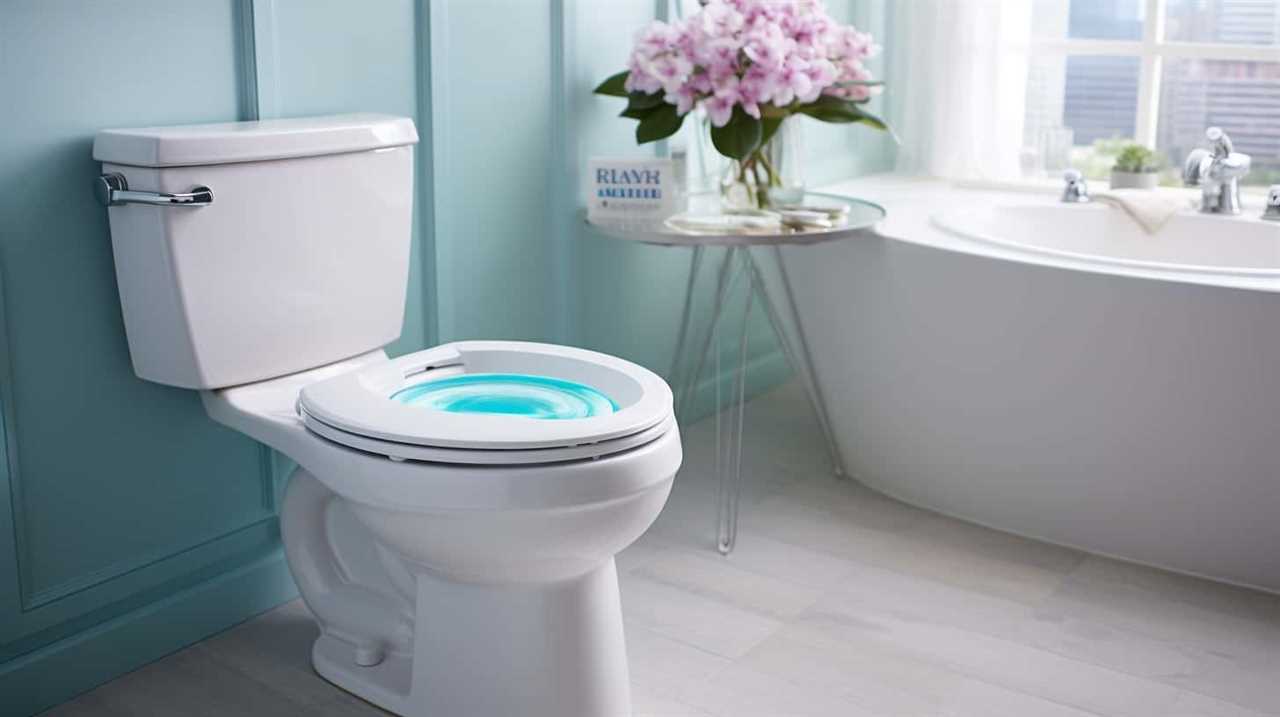
Lastly, be mindful of your water usage. Excessive water can overload your septic system, making it harder for the toilet paper to decompose. Conserving water and spreading out your laundry and dishwasher loads can help maintain an optimal balance.
By following these steps, you can ensure proper toilet paper decomposition and keep your septic system running smoothly.
| Steps to Ensure Proper Toilet Paper Decomposition |
|---|
| Choose septic-safe toilet paper alternatives |
| Practice regular septic tank maintenance |
| Avoid flushing non-biodegradable materials |
| Conserve water and spread out household tasks |
Common Misconceptions About Toilet Paper and Septic Tanks
One common misconception about toilet paper and septic tanks is the belief that all types of toilet paper will decompose equally. However, this isn’t the case. Different types of toilet paper have different levels of biodegradability, which can affect their decomposition in septic tanks.
Toilet paper alternatives:

- Recycled toilet paper: Made from post-consumer recycled paper, this option reduces the environmental impact of toilet paper production.
- Bamboo toilet paper: Bamboo is a fast-growing, renewable resource that requires less water and pesticides compared to traditional tree-based toilet paper.
Environmental impact of toilet paper:
- Deforestation: Traditional toilet paper production contributes to deforestation, as it requires the harvesting of trees.
- Water usage: The production of toilet paper requires significant amounts of water for processing and bleaching.
It is important to consider these factors when choosing toilet paper for septic tanks, as opting for more environmentally friendly alternatives can help reduce the negative impact on the environment.
Frequently Asked Questions
Can I Use Any Type of Toilet Paper in My Septic Tank?
We can use any type of toilet paper in our septic tank, but there are toilet paper alternatives with less environmental impact. Considering the decomposition rate of toilet paper is crucial for maintaining a healthy septic system.
How Long Does It Take for Toilet Paper to Decompose in a Septic Tank?
Toilet paper decomposition time in septic tanks varies depending on factors such as paper thickness and tank conditions. However, using toilet paper alternatives like bidets or wet wipes can reduce the environmental impact and improve decomposition rates.
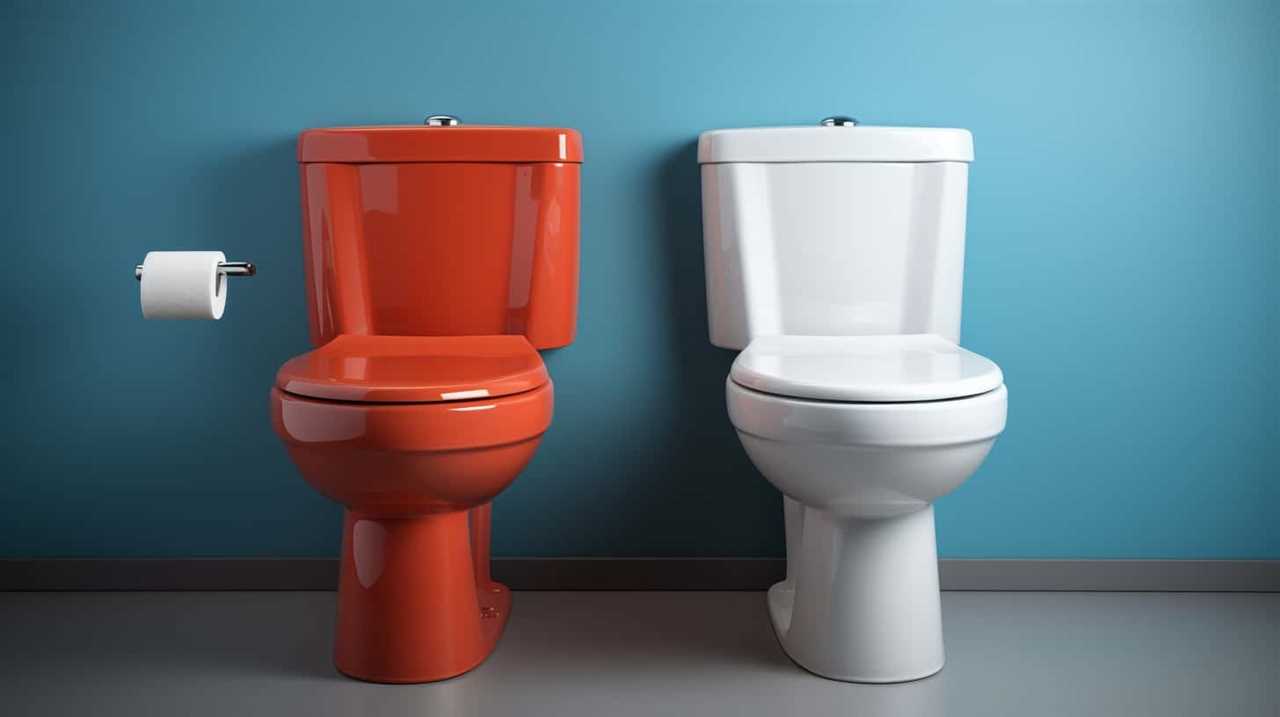
Is It Safe to Flush Toilet Paper in a Septic Tank?
Flushing toilet paper in a septic tank has minimal environmental impact. However, alternative options like using septic-safe toilet paper or implementing a bidet can reduce waste and potential clogs.
What Should I Do if My Toilet Paper Is Not Decomposing in My Septic Tank?
If toilet paper is not decomposing in your septic tank, it’s time to consider using toilet paper alternatives and implementing septic tank maintenance tips. We’ll explore the options and strategies to ensure smooth functioning.
Can Using Too Much Toilet Paper Cause Problems in a Septic Tank?
Using excessive toilet paper can lead to problems in a septic tank. It can cause clogs and reduce the tank’s efficiency. Exploring toilet paper alternatives can be a practical solution to maintain septic tank health.
Conclusion
In conclusion, it’s evident that toilet paper does decompose in septic tanks, but the rate of decomposition can be influenced by various factors. By selecting toilet paper that’s designed to break down easily and following proper maintenance practices, the efficiency of decomposition can be enhanced.
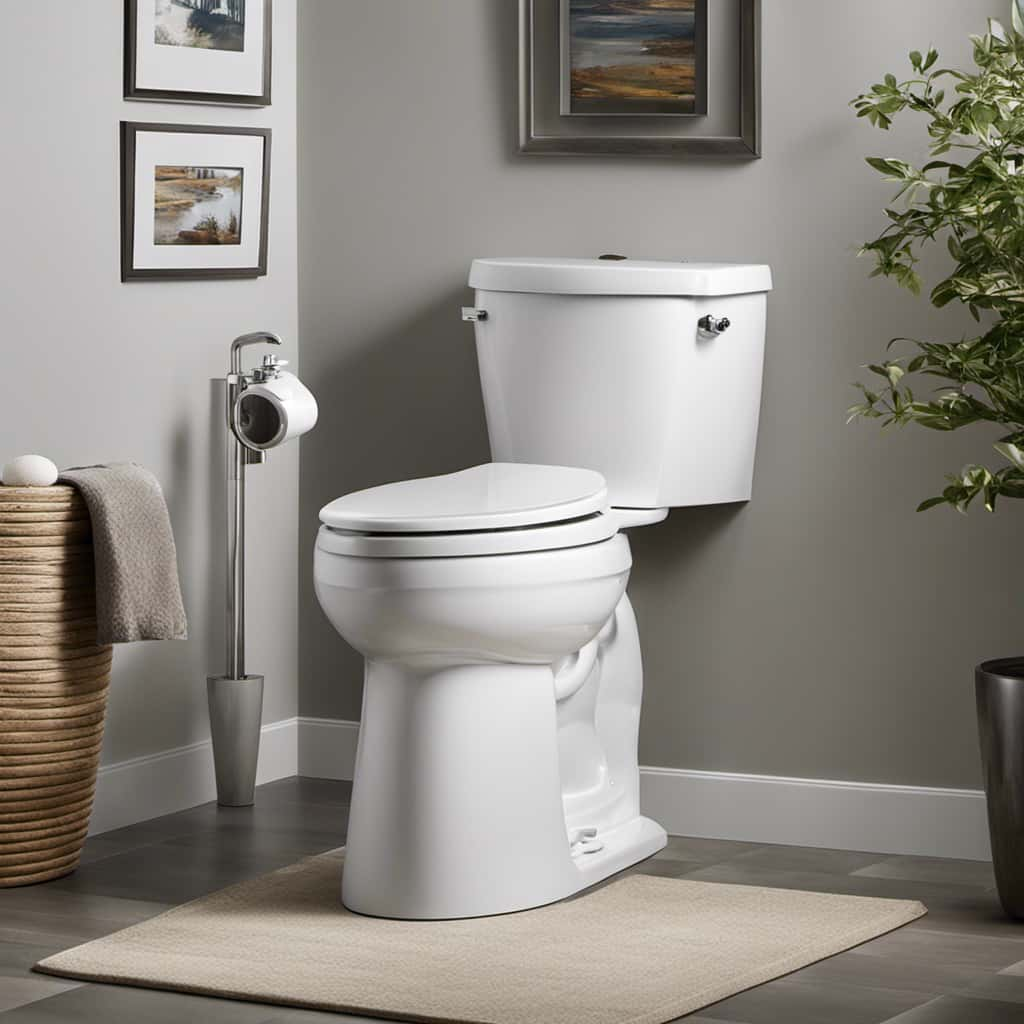
However, it’s important to debunk the misconception that all toilet paper is safe for septic tanks. Just like in life, not all toilet papers are created equal when it comes to the world of septic tanks.





